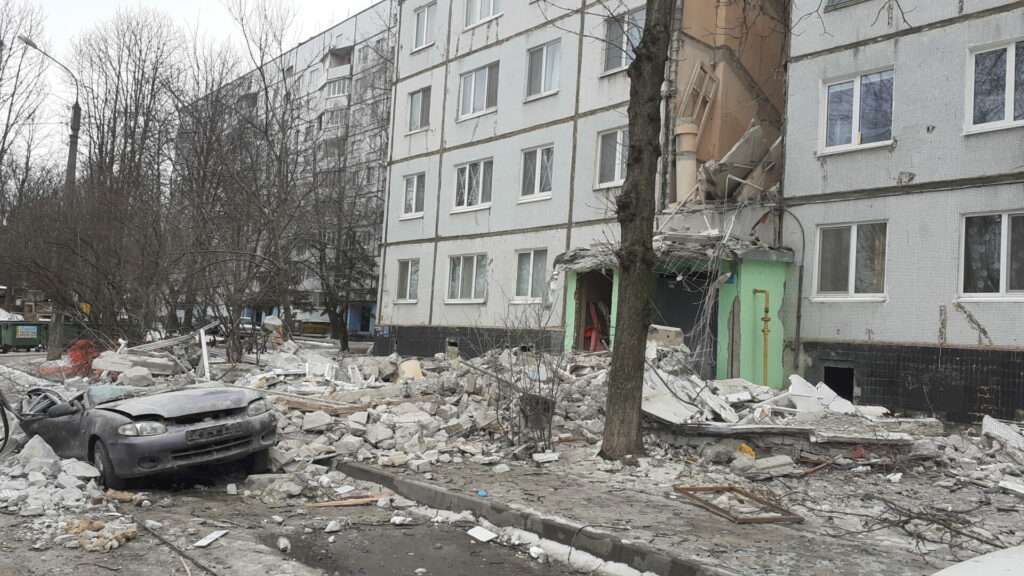In the volatile context of conflict-torn countries and potential flashpoints, prosecuting war crimes is notoriously difficult. But with smartphones now widely available in even the poorest of regions, an abundance of photos, videos, and other evidence flows freely around the world.
Unfortunately, much of this is easily manipulated. A photo may not show the full context, videos can be edited, metadata altered, and true meaning obscured. Whilst international courts have established clear criteria for what is permissible digital evidence, much data ultimately proves insufficient to prosecute for war crimes.
In the context of Russia’s war in Ukraine, where Russian troops have been repeatedly accused of civilian and military atrocities, the importance of verifiable eyewitness testimony is again high on the agenda. Ahead of any future war crimes tribunal against Russian authorities, prosecutors are moving to build a watertight case.
A witness to war
“eyeWitness”, an application created by US data analytics and legal research company LexisNexis’ “Rule of Law Foundation”, alongside the International Bar Association in London. It aims to provide lawyers with verifiable evidence of war crimes committed across the world.
First launched in 2015, the app has already been used successfully in prosecuting war crimes in Africa. In September 2018, a military tribunal in Bukavu (Democratic Republic of the Congo) condemned two high-ranking commanders for murder and torture, all with the help of the eyeWitness app.
“There’s loads of footage on YouTube and all kinds of places on the internet which show war crimes, alleged war crimes, and crimes against humanity… But there’s no way to verify them,” Ian McDougall, President of the LexisNexis Rule of Law Foundation told The Brussels Times. “You can’t submit them as evidence to the International Criminal Court (ICC) because there’s just no way to verify and authenticate them.”
The app takes a novel approach to collecting data by allowing users to take photos and videos directly via the platform, as opposed to using the inbuilt camera app on the user’s smartphone. The footage is then encrypted, timestamped, geo-located, and securely sent to protected servers where it is analysed by a team of lawyers. They then tag, catalogue, and process visual evidence to meet the requirements of international war crimes investigators.
This legally-admissible information is then relayed to the relevant international, regional, or national bodies best placed to bring the perpetrators of crimes to justice. This evidence can importantly be submitted to the International Criminal Court (ICC) – one of the highest authorities to prosecute criminals.
“One of the best things about the app is that it leaves no trace on the user’s phone (the app is hidden but could be found in a more thorough search -ed.) that it was ever used to take videos or photos. This means that if security service personnel confiscated the phone, there would be no evidence that the app has ever been switched on or used,” McDougall explained.
Building the case against Russia
With Russia’s invasion of Ukraine, the application has seen a surge in use and has been used over 31,000 times to upload footage of potential war crimes from Ukraine since February 2022. Photos uploaded have a much higher chance of being used in significant war crimes tribunals.
Ukrainian prosecutor general, Andriy Costin, claims that Ukraine has evidence of over 65,000 incidents of Russian war crimes in Ukraine, over a year after Russia launched its invasion of the country. According to McDougall, a lead prosecutor at the ICC called the app a “major game changer” in the collection of admissible evidence.
In December 2016, the eyeWitness app won the Geneva Centre for Security Policy Prize for Innovation in Global Security. This award recognizes individuals or organisations that create innovations that address international security challenges.
Related News
- Former Belgian minister takes Turkey to ICC for crimes against humanity
- Ukrainian flag protest outside Russian embassy in The Hague reminder about the war
While eyeWitness provides a reliable method to collect legal evidence, LexisNexis must now work to ensure that it is widely available in areas where the possibility of war crimes and crimes against humanity are highest.
“We try to work to make it known through organisations or missions like the European Bar Association (EBA). We are having conversations with the media in the hope of making this much more widely known,” McDougall said.
The LexisNexis Rule of Law Foundation says that it conducts its activities around four guiding principles: “Equality before the law, an independent judiciary, access to the law, and access to remedy.”
It is for access to remedy where the app really delivers: "We are always looking at projects to help advance the rule of law internationally,” the Rule of Law Foundation president concluded.

